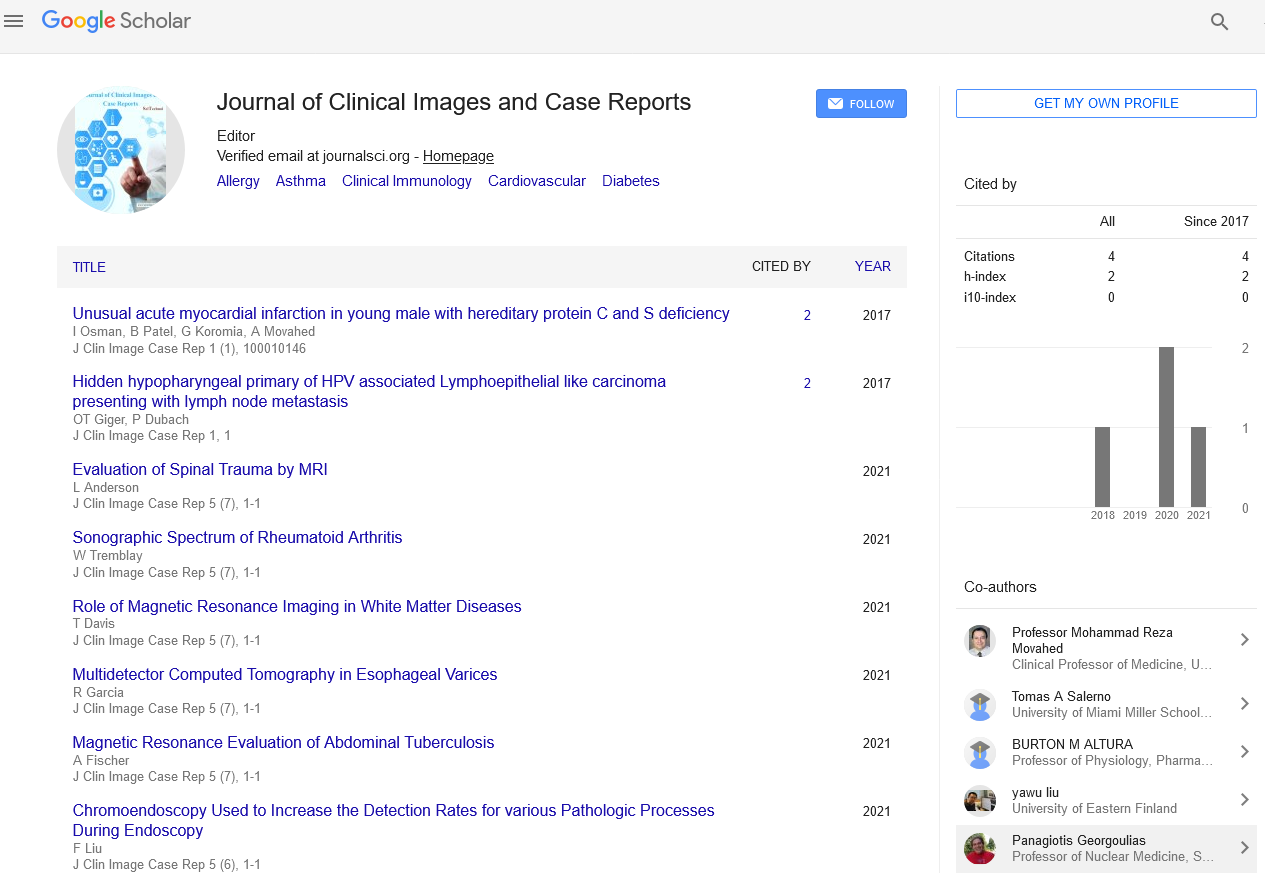Commentary, J Clin Image Case Rep Vol: 8 Issue: 5
The Impact of Proteinuria on Cardiovascular Health
Mikael Girault*
1Department of General Practice, University of Turku and Turku University Hospital, Turku, Finland
*Corresponding Author: Mikael Girault,
Department of General Practice,
University of Turku and Turku University Hospital, Turku, Finland
E-mail: giraultmikael@gmail.com
Received date: 25 September, 2024, Manuscript No. CICR-24-153601;
Editor assigned date: 27 September, 2024, PreQC No. CICR-24-153601 (PQ);
Reviewed date: 11 October, 2024, QC No. CICR-24-153601;
Revised date: 18 October, 2024, Manuscript No. CICR-24-153601 (R);
Published date: 25 October, 2024, DOI: 10.4172/CICR.1000330
Citation: Girault M (2024) The Impact of Proteinuria on Cardiovascular Health. J Clin Image Case Rep 8:5.
Description
Proteinuria, the presence of excess protein in the urine, is a condition that often indicates kidney dysfunction. However, its impact extends beyond kidney health, as it is also associated with an increased risk of Cardiovascular Disease (CVD). Proteinuria is considered a marker of systemic inflammation and endothelial dysfunction, both of which are key contributors to cardiovascular problems. Understanding the relationship between proteinuria and cardiovascular health is important for early detection, risk assessment and the management of both kidney and heart diseases.
The kidneys play a central role in regulating fluid balance, electrolytes and waste removal from the body. When the kidneys are damaged, they can leak excess proteins, such as albumin, into the urine. This condition, known as albuminuria, is often the first indicator of kidney damage and is an early sign of Chronic Kidney Disease (CKD). However, proteinuria is not only a sign of kidney damage; it is also a significant risk factor for cardiovascular disease.
There are several reasons why proteinuria is linked to cardiovascular health. First, the proteins that leak into the urine, particularly albumin, are often a reflection of increased permeability in the blood vessels, which is a sign of endothelial dysfunction. Endothelial cells line the blood vessels and help regulate blood flow and clotting. When these cells are damaged or inflamed, as seen in conditions like hypertension and diabetes, they lose their ability to function properly. This can lead to the development of atherosclerosis, or the buildup of plaque in the arteries, which is a major cause of cardiovascular disease.
Given the strong association between proteinuria and cardiovascular disease, managing proteinuria is difficult for reducing the risk of heart problems. Early detection of proteinuria can help healthcare providers identify individuals who may be at higher risk for both kidney and cardiovascular diseases. Routine screening for proteinuria, particularly in individuals with risk factors such as hypertension, diabetes, or a family history of heart disease, is an important step in identifying those at risk.
The first step in managing proteinuria is controlling the underlying causes. For individuals with hypertension or diabetes, maintaining optimal blood pressure and blood sugar levels is essential to reducing kidney damage and preventing the progression of proteinuria. Angiotensin-Converting Enzyme (ACE) inhibitors and Angiotensin Receptor Blockers (ARBs) are commonly prescribed to help control blood pressure and reduce proteinuria. These medications not only lower blood pressure but also protect the kidneys and reduce the inflammatory response that contributes to protein leakage.
In addition to medications, lifestyle modifications are important in managing proteinuria and reducing cardiovascular risk. A hearthealthy diet, regular physical activity, weight management and smoking cessation can all contribute to improved cardiovascular health. Reducing salt intake, avoiding excessive alcohol consumption and managing stress are also important steps in preventing the progression of proteinuria and its associated cardiovascular risks.
Proteinuria is not only a marker of kidney dysfunction but also an important indicator of cardiovascular risk. The relationship between proteinuria and cardiovascular disease indicates the need for early detection, monitoring and management of both kidney and heart health. By addressing the underlying causes of proteinuria and implementing a comprehensive treatment plan that includes lifestyle changes and appropriate medications, individuals can reduce their risk of both kidney damage and cardiovascular complications. Routine screening and proactive management are essential in preventing the progression of proteinuria and improving long-term health outcomes.
 Spanish
Spanish  Chinese
Chinese  Russian
Russian  German
German  French
French  Japanese
Japanese  Portuguese
Portuguese  Hindi
Hindi 